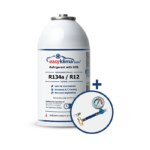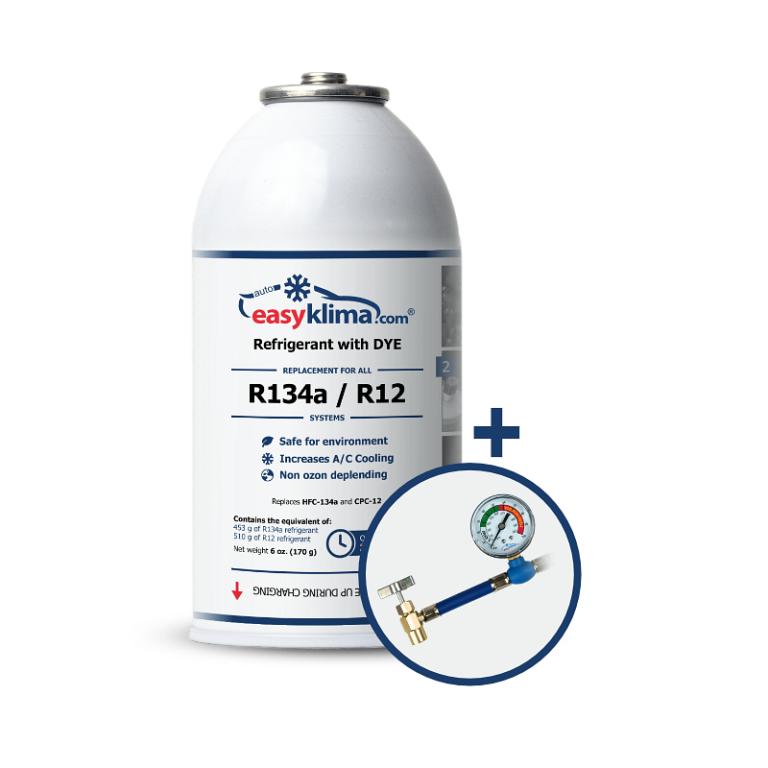The average salary of a tattoo artist is an important aspect to consider when delving into the world of tattooing. Tattoo artists are skilled professionals who create permanent designs on the skin using specialized equipment and techniques. Their income is influenced by various factors such as experience, location, reputation, and clientele. In this article, we will explore the average salary range for tattoo artists, shedding light on the financial aspects of this creative profession. When discussing the average salary of a tattoo artist, it’s important to note that it can vary significantly depending on several factors. One of the primary determinants is the artist’s level of experience and expertise. Beginner tattoo artists typically earn less than their more seasoned counterparts.
As they gain experience and develop a portfolio, their earning potential tends to increase. Location is another crucial factor influencing a tattoo artist’s salary. Different regions and cities may have varying demands and standards in the tattoo industry, which can impact artists’ earnings. For example, tattoo artists working in metropolitan areas or popular tourist destinations may have access to a larger client base, potentially leading to higher income due to increased demand for their services. The reputation of a tattoo artist also plays a vital role in determining their salary. Established tattoo artists who have built a strong portfolio, positive customer reviews, and a solid reputation within the industry are more likely to attract a steady stream of clients. This can lead to higher rates and, consequently, a higher average salary. Reputation often goes hand in hand with expertise, and clients are often willing to pay a premium for the services of highly skilled and reputable tattoo artists. Clientele demographics can also impact a tattoo artist’s income. Artists who specialize in specific tattoo styles or cater to niche markets may have a distinct advantage.
For instance, artists specializing in realistic portraits or intricate geometric designs may attract clients who are willing to pay a premium for their specialized skills. By targeting a specific clientele, artists can position themselves as experts in their chosen field and potentially command higher rates. Now, let’s delve into the numbers. While it is challenging to pinpoint an exact average salary for tattoo artists, industry sources suggest that the range typically falls between $30,000 and $70,000 per year. This estimate encompasses the full spectrum of tattoo artists, from those starting their careers to highly sought-after professionals. However, it’s worth mentioning that top-tier tattoo artists who have achieved celebrity status or are internationally renowned can earn well beyond this range. It’s important to note that the salary figures provided are just averages and individual earnings may vary. Factors such as business expenses, studio fees, and the number of clients an artist serves can impact their take-home income. Additionally, some tattoo artists choose to work as freelancers or operate their own tattoo studios, which can significantly affect their earning potential as they have more control over pricing and profit margins. In conclusion, the average salary of a tattoo artist can vary based on a multitude of factors, including experience, location, reputation, and clientele. While the estimated range for a tattoo artist’s annual income typically falls between $30,000 and $70,000, it is important to remember that these figures are averages and individual earnings may deviate from this range. As with any profession, hard work, dedication, and continuous improvement are essential for tattoo artists looking to increase their earning potential and establish a successful career in the industry.

Factors influencing the earnings of tattoo artists
When it comes to the earnings of tattoo artists, numerous factors come into play, shaping the financial success and stability of professionals in this industry. In this article, we will delve into the key elements that influence the income of tattoo artists, shedding light on the various aspects that contribute to their earnings.
- Skill and Expertise: One of the primary factors influencing the earnings of tattoo artists is their level of skill and expertise. Artists who have honed their craft over time and developed a reputation for exceptional artistry are often in high demand. Clients are willing to pay a premium for the services of skilled artists who can create intricate and visually stunning tattoos. Additionally, experienced tattoo artists may have a larger client base and benefit from repeat business and referrals, further enhancing their income potential.
- Portfolio and Reputation: A tattoo artist’s portfolio and reputation play a vital role in determining their earnings. Artists who have built a strong portfolio showcasing their versatility, creativity, and attention to detail can attract a broader range of clients, including those seeking custom and unique designs. Positive reviews, testimonials, and word-of-mouth recommendations from satisfied clients contribute to a tattoo artist’s reputation, leading to increased visibility and higher earning potential.
- Geographic Location: The geographic location of a tattoo artist’s studio can significantly impact their earnings. Artists working in densely populated areas or cities with a vibrant tattoo culture tend to have more opportunities for client acquisition. Moreover, regions with a higher cost of living often command higher tattoo prices, enabling artists to charge more for their services. On the other hand, artists operating in less populated areas or regions with a less developed tattoo industry may face greater challenges in generating substantial income.
- Studio Setup and Amenities: The setup and amenities offered by a tattoo studio can influence the earnings of its artists. A well-equipped studio with state-of-the-art tools, comfortable seating, and a clean, inviting environment can attract a larger clientele. Clients are more likely to choose a studio that prioritizes hygiene and provides a pleasant experience. Tattoo artists working in such establishments may benefit from higher customer satisfaction, leading to repeat business and positive reviews, ultimately boosting their income.
- Marketing and Branding: Effective marketing and branding strategies can have a significant impact on the earnings of tattoo artists. Utilizing online platforms, social media, and a professional website can increase visibility and attract potential clients. Artists who effectively showcase their work, engage with their audience, and maintain an active online presence can expand their reach and gain a competitive edge in the industry. By building a strong personal brand and fostering a community of loyal followers, tattoo artists can enhance their earning potential.
- Specialization and Niche Expertise: Tattoo artists who specialize in specific styles or niche areas can leverage their expertise to command higher rates. Whether it’s black and gray realism, traditional Japanese designs, watercolor tattoos, or intricate dotwork, developing a niche can attract clients seeking a particular style. By honing their skills in a specific area and continually pushing the boundaries of their chosen style, tattoo artists can establish themselves as industry leaders, leading to increased demand and higher earnings.
- Industry Experience and Networking: Longevity in the tattoo industry can positively impact a tattoo artist’s income. Experienced artists often have a vast network of contacts, including fellow artists, studio owners, and industry professionals. This network can provide opportunities for collaborations, guest spots at renowned studios, and participation in conventions and tattoo events. Such engagements not only enhance an artist’s reputation but also expose them to a wider audience, potentially leading to more clients and higher earnings.

How do tattoo artists determine their pricing?
Tattoos have become increasingly popular in recent years, and as a result, the demand for skilled tattoo artists has risen. One common question that arises when considering getting a tattoo is, “How do tattoo artists determine their pricing?” The cost of a tattoo can vary significantly based on various factors, including the artist’s experience, skill level, geographical location, design complexity, size, and customization requirements. In this article, we will explore these factors and shed light on how tattoo artists determine their pricing.
- Artist’s Experience and Skill Level:
The experience and skill level of a tattoo artist play a significant role in determining pricing. Seasoned tattoo artists with extensive portfolios and a reputation for excellence often charge higher rates due to their expertise. They have spent years honing their craft, mastering techniques, and developing their unique style, which adds value to their work. Novice or less experienced tattoo artists may charge lower rates as they are still building their clientele and establishing their reputation. - Geographical Location:
Geographical location is another crucial factor influencing tattoo pricing. Tattoo studios located in major cities or popular tourist destinations generally have higher operating costs, such as rent, utilities, and supplies. As a result, tattoo artists in these areas often charge higher prices to cover their expenses and maintain a sustainable business. On the other hand, artists in smaller towns or less densely populated areas may have lower overhead costs, allowing them to offer more competitive pricing. - Design Complexity and Size:
The complexity and size of the tattoo design heavily impact the pricing. Intricate designs that require meticulous attention to detail, shading, and intricate linework typically take longer to complete. Artists must consider the time, effort, and skill required to execute such designs, which may result in higher costs. Additionally, larger tattoos require more ink, time, and physical effort to complete, often resulting in higher pricing than smaller tattoos. - Customization and Artistic Freedom:
Some clients come to tattoo artists with a clear and specific design in mind, while others seek the artist’s creative input and expertise. The level of customization and artistic freedom desired by the client can affect the pricing. If a client requests a highly personalized design that requires extensive consultation, revisions, or original artwork creation, the artist may factor in the additional time and effort involved when determining the final price. - Additional Services and Extras:
Tattoo artists may offer additional services or extras that can influence the overall pricing. This may include services like cover-ups, touch-ups, color enhancements, or aftercare products. Each of these services incurs additional costs, and the artist will consider these factors when determining the final price for their work.

Are there different income levels for tattoo artists based on experience?
Tattoo Artist Income: How Experience Influences EarningsWhen exploring the world of tattoo artistry, one question that frequently arises is whether there are varying income levels based on an artist’s experience. Indeed, the income potential for tattoo artists can significantly differ depending on their level of expertise and the duration of their career. In this article, we delve into the intricacies of how experience can shape the earnings of tattoo artists, providing valuable insights for both aspiring tattooists and curious individuals alike. To begin with, it’s essential to understand that the tattoo industry is highly competitive and constantly evolving. It demands a unique blend of artistic skill, technical proficiency, and an ability to build a strong clientele.
As tattoo artists progress through their careers, they often refine their craft, acquire specialized knowledge, and establish a reputation within the community. These factors, among others, play a crucial role in determining their income levels. At the entry-level stage, freshly trained tattoo artists typically start their careers by working as apprentices under more experienced professionals. During this initial phase, income tends to be modest, as these novices are still honing their skills and building a clientele. Apprenticeships are invaluable opportunities for aspiring artists to gain practical experience, learn the trade secrets, and develop their artistic style. As tattooists gain proficiency and confidence, they gradually transition into becoming independent artists. At this intermediate stage, with a few years of experience under their belts, they can start to command higher rates for their services. Their income levels often correlate with their ability to attract and retain clients, as well as the complexity and quality of the tattoos they create. Tattoo artists with a solid portfolio, a strong online presence, and positive customer reviews tend to enjoy a higher demand for their work, translating into higher earnings. However, it is important to note that the tattoo industry is not solely governed by experience alone. Factors such as geographical location, studio reputation, and marketing efforts also contribute to an artist’s income potential. Tattoo artists working in popular urban areas or renowned studios may have access to a larger pool of clients and opportunities, allowing them to command higher rates compared to their counterparts in less prominent locations. Moreover, effective marketing strategies, such as social media promotion and collaborations with influencers, can help tattoo artists expand their reach and attract a more diverse clientele, thereby boosting their earnings.
As tattoo artists progress in their careers and accumulate a substantial amount of experience, they often find additional avenues for income growth. Many accomplished tattooists diversify their revenue streams by participating in tattoo conventions, guest spotting at different studios, or even opening their own tattoo parlors. These entrepreneurial endeavors, combined with their accumulated expertise, can lead to substantial financial rewards and further elevate their status within the industry. In conclusion, the income levels of tattoo artists do indeed vary based on experience. As they transition from apprentices to independent artists, their earning potential increases significantly. Factors such as skill refinement, client base development, and reputation establishment contribute to the upward trajectory of their income. Furthermore, location, studio reputation, and marketing efforts also influence the income levels of tattoo artists. By comprehending these dynamics, aspiring tattooists can make informed decisions about their career paths, and enthusiasts can gain a deeper understanding of the industry’s intricacies.

Can tattoo artists earn additional income from tips and commissions?
Tattoo artists possess a unique skill set that allows them to create stunning and intricate body art on their clients. While their artistic abilities and reputation are key factors in determining their income, it is worth exploring additional revenue streams that tattoo artists can tap into. This article delves into the question: “Can tattoo artists earn additional income from tips and commissions?” By examining the various ways in which tattoo artists can boost their earnings through tips and commissions, we shed light on the potential financial opportunities within the tattoo industry.
Tips, gratuities, or “artist appreciation” are a customary practice in many service-oriented professions, including tattooing. Clients often feel inclined to express their satisfaction and gratitude for a well-executed tattoo by offering a tip. These tips can vary significantly, depending on factors such as the complexity of the tattoo, the time spent on the design, the overall experience, and the client’s personal generosity. Tattoo artists who consistently provide exceptional service and create stunning pieces of art tend to receive higher tips, thereby increasing their income. In addition to tips, tattoo artists can also earn commissions through various means. One common avenue is by working closely with tattoo studios or shops that offer commission-based arrangements. In such cases, the tattoo artist receives a percentage of the total price charged to the client for their services. This arrangement is particularly beneficial for tattoo artists who are affiliated with reputable and popular studios, as they attract a steady stream of clients seeking high-quality artwork. By establishing a strong portfolio and reputation, tattoo artists can negotiate favorable commission rates, allowing them to earn a substantial additional income. Moreover, tattoo artists can explore opportunities to participate in tattoo conventions and exhibitions. These events often feature talented artists from around the world and attract a diverse range of tattoo enthusiasts.
Artists can set up booths or workstations at these conventions, showcasing their skills and offering tattoos to interested attendees. Convention-goers frequently tip artists generously, especially if they appreciate their unique style or are impressed by their live demonstrations. Furthermore, tattoo artists may also have the chance to sell merchandise, prints, or artwork at these events, generating further income. Tattoo artists can further leverage the power of social media platforms to increase their exposure and attract potential clients. By showcasing their portfolio and sharing their artistic process, they can cultivate a dedicated following. This online presence can lead to various opportunities, including collaborations with brands, sponsored content, and even brand ambassadorships. Through these collaborations, tattoo artists can earn additional income through commissions, sponsored posts, or product endorsements. The extent of these opportunities depends on the artist’s popularity, engagement levels, and ability to attract a niche audience. In conclusion, while a tattoo artist’s primary income comes from their skillful artwork and client base, there are several avenues for earning additional income through tips and commissions. By providing exceptional service, building a strong portfolio, participating in conventions, and leveraging social media, tattoo artists can significantly augment their earnings. It is important to note that success in these endeavors requires consistent dedication, skill improvement, and building a reputable brand within the tattoo industry. With a proactive approach and a focus on delivering exceptional artistry, tattoo artists can enjoy a thriving and financially rewarding career.

Is location a significant factor in determining a tattoo artist’s annual income?
The annual income of a tattoo artist is influenced by various factors, and one such factor that holds significant weight is the location of their tattoo studio. While the primary focus of this text remains on the topic of “Tattoo Artist Income: How Much Do They Make a Year?”, the aim is to delve into the impact of location on a tattoo artist’s annual earnings. By exploring this aspect, we can gain valuable insights into the dynamics of the tattoo industry and its regional disparities. The location of a tattoo artist’s studio plays a pivotal role in shaping their annual income due to several key reasons. Firstly, the demand for tattoos varies greatly across different regions and cities. Urban areas with larger populations often have a higher concentration of potential clients, which can lead to a greater number of tattoo appointments and subsequently higher earnings. In contrast, rural or less densely populated areas may have a limited customer base, resulting in lower demand and subsequently lower income for tattoo artists operating there.
Moreover, the cultural and societal factors prevalent in a particular location can significantly impact the tattoo industry. Some regions have a more accepting attitude towards tattoos, considering them as forms of self-expression and art, leading to a higher demand for tattoo services. In such locations, tattoo artists may find themselves in high demand, enabling them to charge premium rates for their expertise. Conversely, areas with conservative or less accepting views on tattoos may experience lower demand, potentially affecting the income prospects for tattoo artists operating in those regions. Another crucial consideration is the level of competition within a specific location. In densely populated areas, the concentration of tattoo studios and artists is usually higher, leading to increased competition for clients. This competitive landscape can influence the pricing strategies of tattoo artists and impact their overall income. In highly competitive areas, artists may need to adjust their rates to attract and retain clients, potentially affecting their annual earnings. Additionally, the cost of living in a particular location can influence a tattoo artist’s income. Areas with higher costs of living often have a corresponding increase in average tattoo prices. Tattoo artists must consider the local economy and pricing trends to ensure their rates align with the market and allow for sustainable income generation.
Failing to account for the cost of living in a specific location could result in undercharging or potential financial strain for the artist. Furthermore, the geographical location of a tattoo studio can also affect the availability of resources and supplies, which can indirectly impact the income of a tattoo artist. Some regions may have limited access to high-quality tattoo equipment or a smaller network of suppliers, leading to higher costs or potential challenges in maintaining a diverse portfolio of tattooing styles. These limitations can influence an artist’s ability to attract clients and impact their overall income potential. In conclusion, the location of a tattoo artist’s studio serves as a significant factor in determining their annual income. The demand for tattoos, cultural attitudes, level of competition, cost of living, and availability of resources all contribute to the regional disparities observed in the tattoo industry. By understanding these dynamics, tattoo artists can make informed decisions about their studio location, pricing strategies, and target audience to optimize their annual earnings.






















Great writing! Your post is full of interesting information and inspiring ideas.